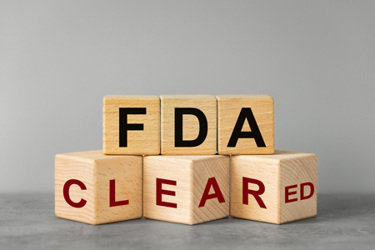25 Tips To Prepare A Clinical Site For FDA Inspection

By Dan Schell, Chief Editor, Clinical Leader

During the past few months, I’ve interviewed four women (see hyperlinks at the end of the article) who have either been a former FDA investigator or been involved with many regulatory inspections. Additionally, last year I interviewed former FDA investigator Vin Cafiso about his “20 Things Never to Say to an FDA Investigator” list, and I spoke with another former FDA inspector, Patrick Stone, about what to expect from an FDA inspection. From all those interviews, I’ve culled the following list of takeaways that I hope you will find useful when preparing for any type of regulatory inspection. And, if I’ve missed any, please send me an email at dan.schell@lifescienceconnect.com.
IMMEDIATE ACTIONS
- Notify your CRA/sponsor immediately — This should be your first priority when you learn of an inspection.
- Inform your Project Manager and Quality Assurance department — Keep all stakeholders in the loop.
- Review the FDA's BIMO inspection guide — The FDA publishes the actual guide their inspectors use. The FDA's BIMO Compliance Program Guidance Manuals are publicly accessible online.
DOCUMENTATION & RECORDS
- Ensure all training records are current and complete – This is one of the first things inspectors check.
- Update and verify your Delegation of Authority (DOA) — Every task must be assigned to a qualified, trained person.
- Keep your CV up to date — Personal documentation should be current.
- Maintain complete IRB submissions and approvals in your Trial Master File — Don't rely on portal access during inspection.
- Prepare the PI's list of studies — Requirements are in the inspector's manual; have this ready on day 1.
- Review and organize all patient data and regulatory files — Conduct a thorough pre-inspection review.
- Ensure drug accountability logs are accurate and up to date — This is a common area of focus during audits.
TEAM PREPARATION & COMMUNICATION
- Conduct mock interviews with staff — Practice answering sample questions beforehand.
- Establish clear team workflow and roles — Designate front room host, minute-taker, and back-room support.
- Brief all staff on appropriate communication — Everyone should know when to stop talking and stay composed.
- Only answer questions you're qualified to answer — Even if you know the answer, defer if it's outside your role.
- Consult site SOPs before discussing procedures — Always reference official documentation.
SYSTEM ACCESS & SECURITY
- Revoke access for departed staff members — Ensure all former team members have their system access terminated.
- Save correspondence about access revocation — Document all access management actions.
- Prepare EDC and platform access records — Have documentation of who accessed what systems and when.
- Request IT access early if needed — Don't wait until the last minute for technical requirements.
INSPECTOR RELATIONS & LOGISTICS
- Be professional, respectful, and courteous — Attitude can impact the inspection outcome.
- Provide a private conference room with refreshments — Offer snacks, coffee, and water.
- Give exactly what they ask for, nothing more — Don't volunteer additional information beyond requests.
- Have all medical records on-site and ready — Ensure physical availability of required documents.
PROCESS & MINDSET
- Self-identify problems and implement CAPAs — Show proactive quality management; inspectors shouldn't be first to find issues.
- Expect to find minor issues — Inspectors will find things you didn't imagine; focus on patient safety over perfection.
ADDITIONAL TIPS
- Start preparation immediately — Don't save all your inspection-related tasks for the day before inspection.
- Document everything in real-time — Don't recreate missing documents after the fact.
- Licensed professionals must assess AEs/SAEs — Non-licensed staff performing medical assessments is a major finding.
- Inspectors expect some deviations — Perfect records can appear suspicious
See also:
